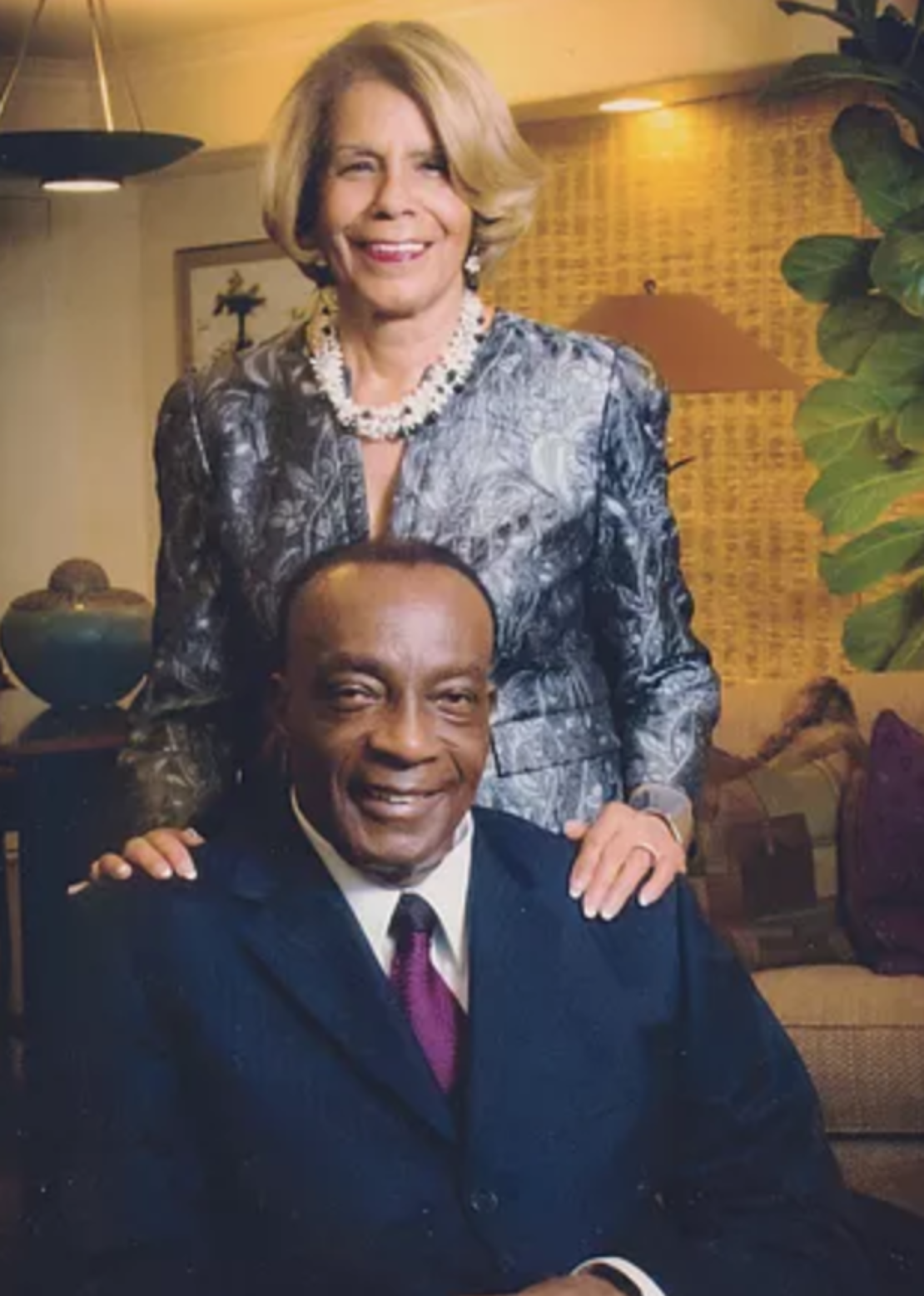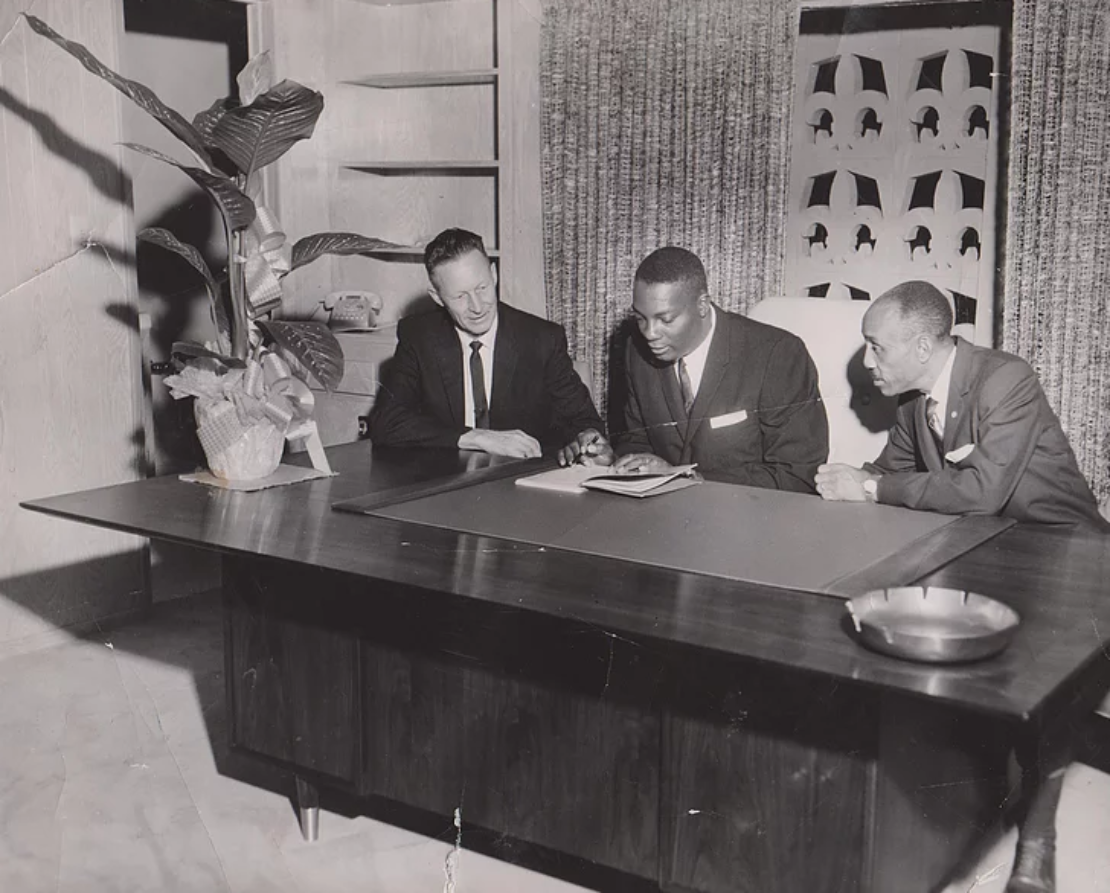For Long Beach and Compton’s black community, Dr. Matthew Jenkins is synonymous with class, integrity and success—and it explains why hundreds attended his memorial service this past weekend on Oct. 19 at the Cornerstone Church in East Long Beach.
Over the course of his life with his wife and partner of 61 years, Roberta, Jenkins would quietly give away $15 million toward education, with donations going toward his alma mater, Tuskegee University, Claremont Graduate University, Charles Drew University, UCLA, and, of course, Cal State Long Beach.
And it wasn’t just his generosity that was the astounding characteristic of the doctor.
“Dr. Jenkins played an instrumental role in my life,” said Carl Kemp, who opened the memorial with a speech. “His book affected my consciousness at a time when I truly needed it. He and Mrs. Jenkins’ judgment-free generosity is like the wind; quiet but powerful, pushing those willing to lift their own sails forward through rough seas to destinations they would otherwise likely never reach. Though I did not know him very well, our interactions were real, and for me his legacy will live on in the lessons laid out in ‘Positive Possibilities.’ It was my honor to be asked to facilitate the tribute to his life.”
Born on a farm in Baldwin County, Alabama in 1933, he was one of 10 children and had the burden of losing his father, John Jenkins, when he was only two years old. Amelia, Matthew’s mother, was a strong woman who remained on the farm, teaching her children the importance of discipline, education and, perhaps most importantly, the value of returning the fruits of one’s success back into their communities. All of this done at a time when the Jim Crow south sought to systematically annihilate the success of its black denizens.
Generosity and persistence were characteristics that his father had embodied. In his book, “Positive Possibilities,” Jenkins discusses a story of his father nearly being beaten to death in 1890 after receiving a warning that the Ku Klux Klan had been plotting to burn the crops of black-owned farms. John’s body was thrown on a train and eventually dumped by the conductor, where a Greek immigrant found him, tended his wounds and essentially saved his life.

“The Good Samaritan called on four trusted neighbors to help carry [my father] to safety and mend his body so the town’s only doctor wouldn’t report a bloody black man to the local sheriff,” Jenkins wrote in his book. “One thing I’ve found through all my travels is that there are good souls to be found everywhere. Caring brings people together. We never knew the name of that Good Samaritan or anything of his family, only that he saved my father’s life and then disappeared. My father only knew that a Greek immigrant had found him and tended his wounds.”
John Jenkins related this act of compassion, repeatedly, to all his children, even two-year-old Matthew, instilling in them the ideals that hate is not worth one’s energy and that discipline and hard work is required no matter where one stands on the social ladder. Likewise, giving back to one’s community—whether it’s warning others of danger or taking care of a person left to die—were the most worthy of behaviors.
It was those characteristics that Dr. Jenkins learned to home in on. He earned a doctorate in veterinary medicine in 1957—an accomplishment that was rare even for the privileged, let alone a black man of the 1950s—which was directly followed by enlistment into the United States Air Force, where he served as Captain from 1958 to 1960.
He opened one of the first black-owned animal hospitals in the region when he opened up his veterinary practice in Compton in 1960, providing full-time jobs to 18 veterinarians. His real estate and property investment firm, SDD Enterprises Inc., founded with his wife Roberta, grew to have locations in eight states while serving multiple communities.

When LBUSD discovered that students of color were failing disproportionately in STEM subjects, he launched the Math Collaborative at Jordan. Its success grew to outposts at Cabrillo and Wilson, as well.
These beliefs became embodied in the aforementioned “Positive Possibilities,” a book praised for being more of a textbook for a healthy society than a memoir.
Dr. Alex Norman, professor emeritus at the UCLA Luskin School of Public Affairs, has constantly praised the book, telling the Gazettes when the book was first published in 2017 it was “the most important book on African American leadership that I have read. It is a must-read for anyone interested in the future of African Americans in the United States.”
The words, philanthropy and beauty of Jenkins lives on. To his group of followers online, he last posted on Aug. 26 saying, “Everyday we are healthy is a good day. Be nice to some person you know or don’t know.”
Brian Addison is a columnist and editor for the Long Beach Post. Reach him at [email protected] or on social media at Facebook, Twitter, Instagram, and LinkedIn.

